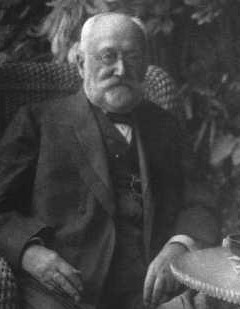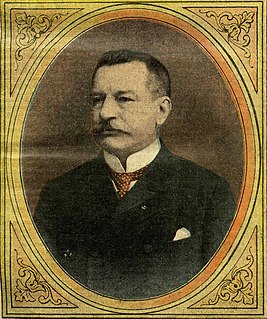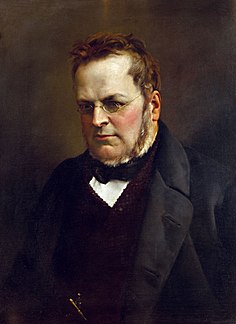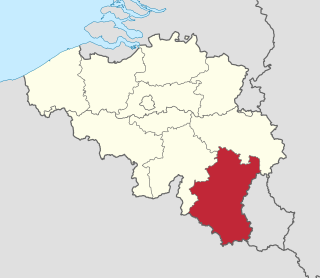
Parliamentary elections were held in Austria on 1 March 1970. The result was a victory for the Socialist Party, which won 81 of the 165 seats to become the largest party for the first time in the Second Republic, only two seats short of a majority. Bruno Kreisky of the Social Democrats became Chancellor at the head of a minority government that was tolerated by the Freedom Party of Austria in return for electoral reform that favoured smaller parties. Voter turnout was 91.8%. It was the first Socialist-led government since 1920, and the first purely left-wing government in Austrian history.

Federal elections were held in Germany on 20 February 1890. The Centre Party regained its position as the largest party in the Reichstag by winning 106 of the 397 seats, whilst the National Liberal Party, formerly the largest party, was reduced to 42 seats. Despite receiving the most votes, the Social Democratic Party won only 35 seats. Voter turnout was 71.5%.

Federal elections were held in Germany on 25 January 1907. Despite the Social Democratic Party (SPD) receiving a clear plurality of votes, they were hampered by the unequal constituency sizes that favoured rural seats. As a result, the Centre Party remained the largest party in the Reichstag after winning 105 of the 397 seats, whilst the SPD won only 43. Voter turnout was 84.7%.
Parliamentary elections were held in Montenegro on 20 October 2002. The result was a victory for the For a European Montenegro alliance formed by the Democratic Party of Socialists of Montenegro and the Social Democratic Party of Montenegro, which won 39 of the 75 seats. It was the last parliamentary election held in Montenegro prior to independence in 2006.

Full general elections were held in Belgium on 14 October 1894, with run-off elections held on 21 October 1894.

Partial general elections were held in Belgium on 25 May 1902. The result was a victory for the Catholic Party, which won 54 of the 85 seats up for election in the Chamber of Representatives. Voter turnout was 95.7%.

Partial general elections were held in Belgium on 27 May 1906. The result was a victory for the Catholic Party, which won 50 of the 85 seats in the Chamber of Representatives.

Partial general elections were held in Belgium on 24 May 1908. The result was a victory for the Catholic Party, which won 37 of the 82 seats in the Chamber of Representatives. The François Schollaert government remained in office.

Parliamentary elections were held in Hungary on 25 and 26 January 1920. However, they were only held in 164 districts. After the Treaty of Trianon was signed, the 44 districts previously occupied by Romania voted between 13 June and 5 July, whilst the 11 districts occupied by Serbia did not vote until 30 and 31 October 1921. The election was held with compulsory voting. In protest at this and other changes to the franchise that left 60% of the voting age population unable to vote, the Hungarian Social Democratic Party boycotted the elections, and called for its supporters to cast invalid votes, resulting in an unusually high number of blank or invalid votes - 11.8% in the January elections and over 20% in Budapest and other major cities.

Parliamentary elections were held in Hungary between 31 March and 7 April 1935. The result was a victory for the Party of National Unity, which won 164 of the 245 seats in Parliament. Gyula Gömbös remained Prime Minister.

Parliamentary elections were held in Hungary on 15 June 1975. The Hungarian Socialist Workers' Party was the only party to contest the elections, and won 215 of the 352 seats, with the remaining 137 going to independents selected by the party. Of the 352 constituencies, only 34 had more than one candidate.

Parliamentary elections were held in Hungary on 8 June 1985. The Hungarian Socialist Workers' Party was the only party to contest the elections, and won 288 of the 387 seats, with 98 of the remaining 99 going to independents selected by the party, whilst one seat remained unfilled until the following year.

General elections were held in Italy on 27 January 1861, with a second round on 3 February. The newly elected Parliament first convened in Turin on 4 March 1861, where, thirteen days later, it declared the unification of the country as the Kingdom of Italy.

Parliamentary elections were held in Latvia on 7 and 8 October 1922. The Latvian Social Democratic Workers' Party remained the largest party, winning 30 of the 100 seats.

Parliamentary elections were held in Latvia on 3 and 4 October 1925. The Latvian Social Democratic Workers' Party remained the largest party, winning 32 of the 100 seats.

Parliamentary elections were held in Latvia on 6 and 7 October 1928. The Latvian Social Democratic Workers' Party remained the largest party, winning 25 of the 100 seats.

General elections were held in Liechtenstein on 11 March 1918, with a second round on 18 March. They were the first elections held in the country contested by political parties, as the Christian-Social People's Party and Progressive Citizens' Party had been founded that year. The Progressive Citizens' Party emerged as the largest in the Landtag, winning seven of the 12 elected seats.

General elections were held in Liechtenstein on 29 April 1945. Following the "silent elections" of 1939, they were the first to use the new proportional representation system. The Progressive Citizens' Party won eight of the 15 seats in the Landtag, but remained in coalition with the Patriotic Union.

General elections were held in Portugal on 28 April 1918, following a coup by Sidónio Pais in December 1917. The elections were boycotted by the Democratic Party, the Evolutionist Party and the Republican Union, who had won over 90% of the seats in the 1915 elections.

General elections were held in San Marino on 28 August 1932. After it had risen to power over the country in April 1923, the Sammarinese Fascist Party was the only party to contest the elections, winning all 60 seats.
















